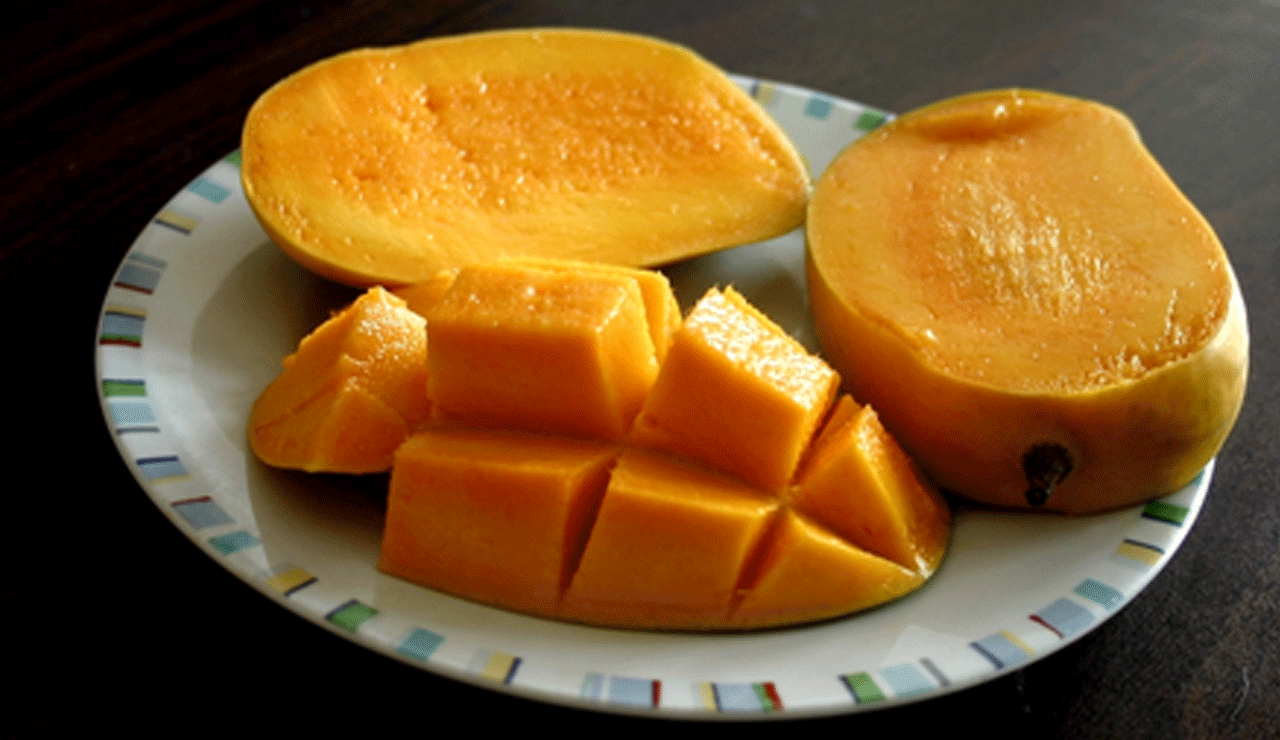From Gir to Global: Gujarat’s Kesar Mangoes Redefining India’s Mango Trade
Gujarat’s mango industry is gaining global traction, with exports of the famed Kesar mango reaching 689.5 metric tonnes in the 2023–24 season.

Kesar Mango: Gujarat’s Golden Export
Ahmedabad: Gujarat’s mango industry is gaining global traction, with exports of the famed Kesar mango reaching 689.5 metric tonnes in the 2023–24 season.
Table of Contents
Known for its distinct aroma, saffron-coloured pulp, and rich sweetness, the GI-tagged Kesar mango is one of India’s most beloved fruit varieties both locally and internationally.
Origin of Kesar Mango: A Legacy from Junagadh
The Kesar mango traces its roots back to 1931, when it was first cultivated in Junagadh’s Gir region. It got its name from the Nawab of Junagadh, who, impressed by the mango’s deep orange hue, named it “Kesar”, meaning saffron.
Mango Cultivation Across Gujarat
Today, Gujarat boasts over 177,514 hectares of mango orchards across key districts such as Valsad, Navsari, Gir-Somnath, Surat, and Kachchh. The state produced 1.08 million metric tonnes of mangoes in 2024, up from 960,000 metric tonnes in 2023, as per the Horticulture Department of Gujarat.
Ideal Conditions for Kesar Mango Growth
Experts attribute the Kesar mango’s premium quality to Gujarat’s soil and climate. The sandy loam and black cotton soils, combined with hot summers and moderate rainfall, create perfect conditions for mango cultivation.
“The high temperature and soil nutrients enhance the mango’s natural sugars, making it sweeter and more flavorful,” said Dr. Ramesh Patel, agricultural scientist at Junagadh Agricultural University.
Economic Impact of Mango Farming in Gujara
Mango farming is a cornerstone of Gujarat’s rural economy. In 2021, the mango industry generated over ₹17 billion in revenue. Farmers are increasingly adopting modern techniques such as drip irrigation, organic composting, and grafting to boost productivity and fruit quality.
Gujarat’s Global Mango Footprint
Over the past five years, Gujarat has exported 2,500+ metric tonnes of mangoes, with top markets in the UK, US, and Canada. The Gujarat Agro Radiation Processing Facility in Bavla, Ahmedabad, plays a vital role in export readiness by irradiating and certifying mangoes for international standards.
“Our mangoes have a strong demand in Europe and North America. With better cold storage and export infrastructure, Gujarat can lead India’s mango exports,” said Prakash Mehta, exporter from Ahmedabad.
Challenges and Future Prospects
Despite its success, Gujarat’s mango industry faces threats from climate change, pests, and market volatility. To combat these issues, the state is investing in subsidized irrigation, logistics improvements, and scientific research.
Partnerships with ICAR and agricultural universities aim to develop disease-resistant and climate-adaptive mango varieties to ensure long-term sustainability.
